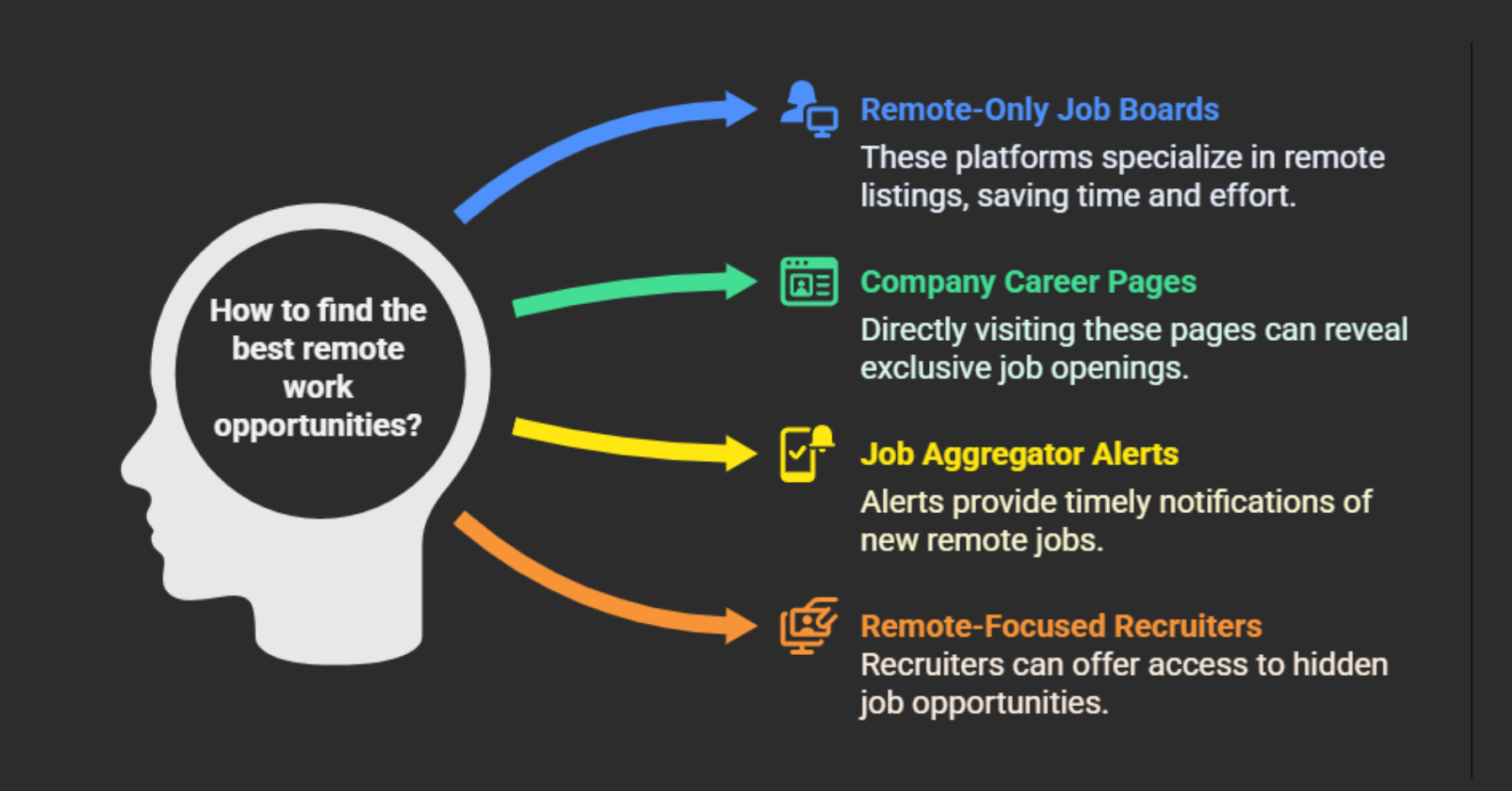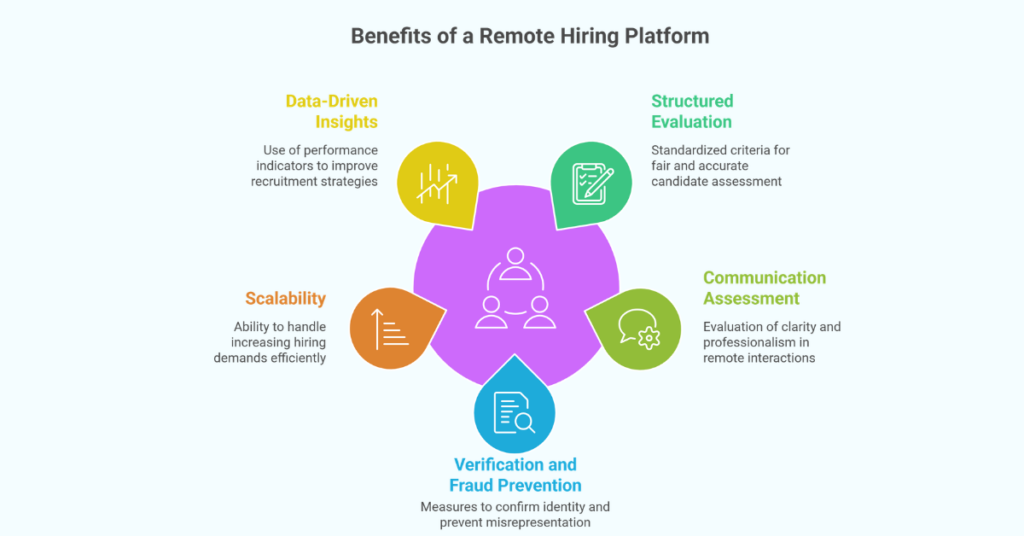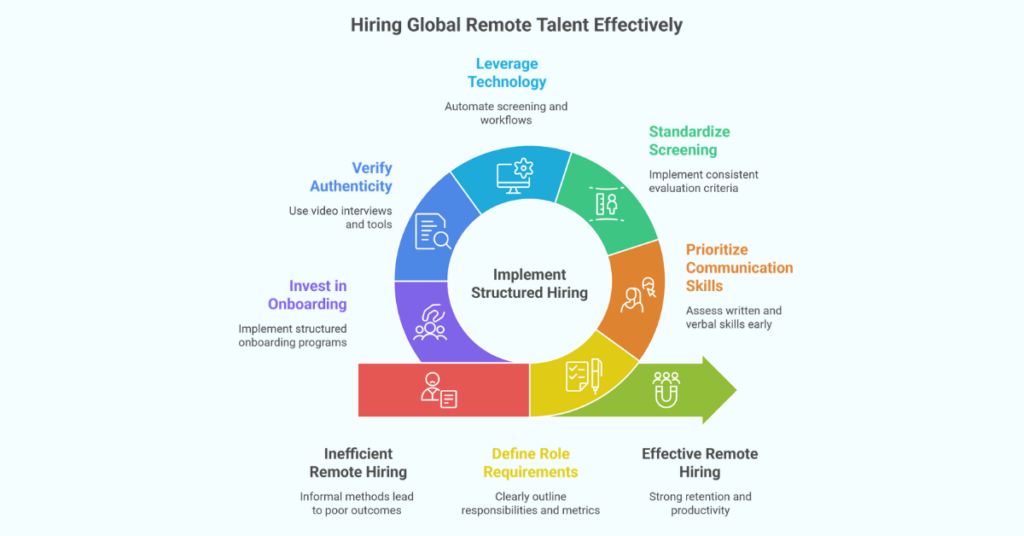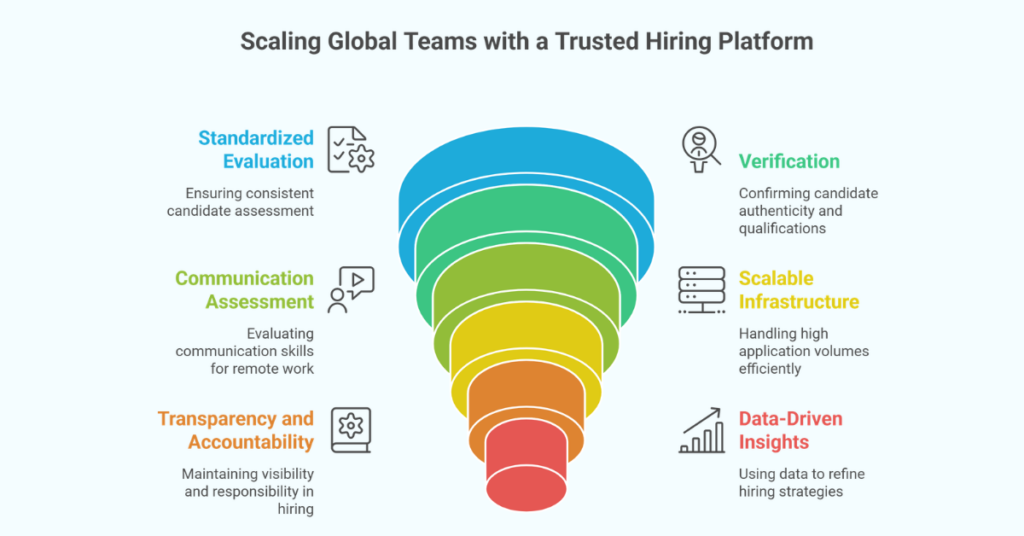“Mastering the right tips for finding remote work opportunities can turn your job search into a global career breakthrough.”
Remote work is no longer a trend—it’s a permanent shift in how we work and live. As companies across industries embrace virtual teams, job seekers are faced with both opportunity and competition in the search for remote roles. To stand out in this new digital job market, it’s crucial to follow the right tips for finding remote work opportunities that align with your goals, lifestyle, and skillset.
With flexibility, better work-life balance, and the ability to work from anywhere, remote jobs offer numerous advantages. However, finding the right fit requires more than browsing job boards. It’s about having a strategic approach—knowing where to look, how to tailor your application materials, and how to build a strong personal brand online. Whether you’re new to remote work or a seasoned professional making a career shift, understanding these steps will empower you to navigate the job search with clarity and confidence.
In this article, we’ll walk through effective job search strategies, recommended platforms, networking tips, resume writing techniques, and how to leverage LinkedIn and social media to land your dream remote job.
1. Where to Find the Best Remote Work Opportunities
Understanding where to look is half the battle. These platforms are known for reliable, high-quality remote listings.
1. Use Remote-Only Job Boards
Remote-specific job sites like We Work Remotely, Remote OK, and similar platforms specialize in telecommute listings. These websites eliminate the guesswork by curating only remote roles, saving you hours of filtering through traditional listings.
2. Explore Company Career Pages
Target remote-first companies and regularly visit their career pages. Many organizations list openings exclusively on their websites before promoting them elsewhere. Bookmark your top choices and check for updates weekly.
3. Set Up Alerts on Job Aggregators
Platforms like Indeed and Glassdoor allow you to filter jobs by “remote” and set customized alerts. These alerts will notify you as soon as new relevant remote roles are posted.
4. Register with Remote-Focused Recruiters
Partnering with recruitment agencies that specialize in remote work increases your access to vetted opportunities. These recruiters can connect you with positions that may not be publicly advertised.
5. Consider Freelance Platforms for Contract Work
Platforms like Upwork, Toptal, and Fiverr offer contract roles that often evolve into long-term remote engagements. This is a great starting point to gain experience and build remote credibility.
2. Building a Strong Online Presence for Remote Work
Having a professional digital footprint can be the deciding factor for many remote roles.
1. Create a Standout LinkedIn Profile
Your LinkedIn should reflect your skills, accomplishments, and interest in remote work. Use keywords relevant to your field, and list “Open to Remote Opportunities” in your headline or summary.
2. Build a Personal Website or Portfolio
For creative or tech roles, a personal site showcasing your work can greatly boost credibility. Even a basic portfolio that highlights your achievements sets you apart from others.
3. Stay Active in Remote Work Communities
Engage in online communities on Slack, Discord, or Facebook focused on remote work. Sharing insights, commenting on posts, and building relationships can lead to job referrals and early access to openings.
4. Blog or Share Insights in Your Field
Publishing short blogs or content on LinkedIn about your industry positions you as a thought leader and keeps you visible to potential employers.
5. Maintain a Clean Digital Footprint
Ensure your social media profiles reflect professionalism. Employers often check social platforms before scheduling interviews.
3. Tailoring Your Resume and Cover Letter for Remote Positions
Generic resumes won’t make the cut in the remote world. Customization is essential.
1. Highlight Remote Work Experience
If you’ve worked remotely before, showcase it in your job descriptions. Use phrases like “Remote Collaboration” or “Virtual Team Leadership.”
2. Emphasize Self-Management and Communication Skills
Remote roles require independent work and proactive communication. Mention tools like Slack, Zoom, Asana, or Trello that you’ve used.
3. Use Keywords from the Job Posting
Tailor your resume to match the keywords used in the job description. This improves your chances of passing Applicant Tracking Systems (ATS).
4. Personalize Your Cover Letter
Address specific reasons why remote work suits you and what value you’ll bring to a virtual team. Mention the company by name and highlight shared values.
5. Include Metrics and Achievements
Showcase tangible results and data points. “Increased client satisfaction scores by 25% through remote onboarding process” tells a better story than generic statements.
4. Using Social Media to Find Remote Job Opportunities
Beyond job boards, social platforms are powerful job search tools when used strategically.
1. Follow Remote-Friendly Companies
Identify and follow companies known for remote work on LinkedIn, Twitter, and Instagram. Engage with their content to increase visibility.
2. Join Relevant Hashtag Conversations
Use hashtags like #RemoteWork, #DigitalNomad, or #RemoteJobs to find fresh posts and job listings. Participate in discussions to build a network.
3. Share Your Remote Work Journey
Posting updates about your skills, projects, or learning experiences can attract recruiters and spark meaningful conversations.
4. Directly Message Hiring Managers
If done professionally, messaging recruiters or managers can help you stand out. Mention why you’re interested in the role and how you discovered them.
5. Use Twitter Job Alerts
Search Twitter with filters like “remote job” + your field (e.g., “remote job graphic design”) and save those searches for daily review.
5. Leveraging LinkedIn to Land Remote Work
LinkedIn is the most powerful tool in your remote job search toolbox.
1. Turn On “Open to Work” for Remote Roles
Enable the feature on LinkedIn that shows recruiters you’re open to remote roles. This simple step increases your chances of being found.
2. Engage with Posts from Hiring Managers
Commenting on and resharing job-related posts boosts your profile visibility and makes it easier to connect with decision-makers.
3. Publish Content that Demonstrates Expertise
Regularly share posts about trends in your field, remote work tips, or lessons learned from past projects. This builds your credibility.
4. Ask for Endorsements and Recommendations
Gathering recommendations from past colleagues helps recruiters quickly validate your skills and professional history.
5. Join and Participate in Remote Work LinkedIn Groups
These groups share job leads and insider advice. Engaging in conversations can lead to valuable connections and job referrals.
A Simple Overview: Tips for Finding Remote Work Opportunities
Finding remote work takes more than applying online—it requires strategy and visibility.
-
What Are Remote Work Opportunities?
Jobs that allow professionals to work from anywhere, often with flexible hours and virtual communication. -
Why Are These Opportunities Important?
They offer better work-life balance, eliminate commuting, and expand access to global employers. -
How to Find Remote Jobs Successfully?
Use remote job boards, strengthen your LinkedIn presence, network in remote communities, and tailor each application. -
Key Tools You Need:
-
LinkedIn
-
Remote-only job boards like Remote Recruit
-
Resume builders
-
Communication platforms like Zoom and Slack
-
-
How to Stand Out as a Remote Job Seeker:
-
Highlight remote work skills
-
Show self-discipline and clear communication
-
Build a strong digital footprint
-
Solutions Provided by Remote Recruit
Remote Recruit streamlines the job search process for remote-focused professionals.
For job seekers, Remote Recruit offers personalized job matching, resume review tools, and access to exclusive job postings in a variety of industries. Its AI-powered system ensures that your profile gets matched with jobs that truly fit your skills and work preferences, including flexibility, time zones, and team culture.
For employers, Remote Recruit provides a curated pool of pre-screened candidates ready for remote work. With built-in tools to assess communication skills, cultural fit, and technical capabilities, employers save time and hire faster. Additionally, Remote Recruit supports video resumes and asynchronous interviews, enabling efficient decision-making for distributed teams.
Whether you’re applying or hiring, Remote Recruit bridges the gap between great talent and great remote opportunities.
Conclusion
With the right approach and tools, finding remote work opportunities becomes an achievable and rewarding journey. From using niche job boards and building a professional online presence to leveraging social media and tailoring your resume, every step increases your chances of landing your dream remote job.
The digital job market is growing rapidly, but so is the competition. By focusing on value-driven applications and actively networking in remote-friendly spaces, you can stand out and take control of your career path. Remote Recruit supports you at every stage—empowering job seekers and employers to connect in meaningful, impactful ways.
Unlock your ideal remote career—sign up on Remote Recruit today and start finding remote jobs that match your skills and lifestyle!
Frequently Asked Questions (FAQs)
1. What are the best websites to find remote jobs?
Top platforms include Remote OK, We Work Remotely, FlexJobs, and Remote Recruit.
2. How can I tailor my resume for remote jobs?
Highlight remote tools, communication skills, and past remote work experience to align with what remote employers value.
3. Do I need prior remote experience to get a remote job?
While helpful, it’s not required. Demonstrating self-management and communication skills can bridge the gap.
4. How important is LinkedIn for finding remote work?
Extremely important—many recruiters use LinkedIn as their first stop when sourcing candidates for remote roles.
5. How does Remote Recruit help remote job seekers?
Remote Recruit offers personalized job matching, resume support, and access to verified remote job opportunities in multiple industries.
